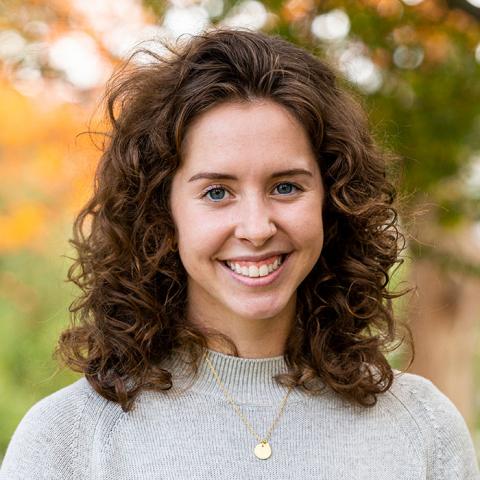Summer Centered: Karlie Pollock ’22 Organizes Pediatric Concussion Data

Details
The psychology major is doing neuropsychology research at the Children's Hospital of Philadelphia’s center.
According to Children’s Hospital of Philadelphia, or CHOP, 2.5 million high school students get a concussion every year. Karlie Pollock’s work this summer could help researchers understand more about those concussions and other pediatric head trauma.
She is a research assistant for Mary Iampietro in CHOP’s Center for Injury Research and Prevention and the Minds Matter concussion program. During her KINSC-sponsored internship, Pollock is organizing and analyzing data from 300 pediatric patients in the concussion program.
“The goal of making this database is not only to provide medical professionals with basic categorical and descriptive statistics that show how the program has been operating,” said Pollock, “but also to open the opportunity to see trends within the data that could be used to further our understanding on varying aspects of concussions and pediatric head trauma.”
Pollock, a psychology major with neuroscience and health studies minors, discovered the field of neuropsychology through conversations with Haverford alumni. Neuropsychology examines how people’s brain and nervous systems affect their behavior--for example, trying to understand how a concussion affects how people think and behave.
“This field allows me to work with patients, continue to work with different forms of assessments and imaging, and combine my interests in neuroscience and psychology,” said Pollock.
Though Pollock has taken classes that involved neuropsychology--developmental psych, cognitive neuroscience, and behavioral neuroscience--this internship is her first experience working in the field directly. She wants to specialize in concussions, head trauma, and characteristics of neurodegenerative disorder so work in CHOP’s concussion clinic is a great fit.
“I am planning on going to graduate school to get a Ph.D. in clinical psychology with a concentration in neuropsychology, so this internship will help me get more research experience that simulates more of a grad school environment,” she said.
“Summer Centered” is a series exploring our students’ campus-supported summer work.




